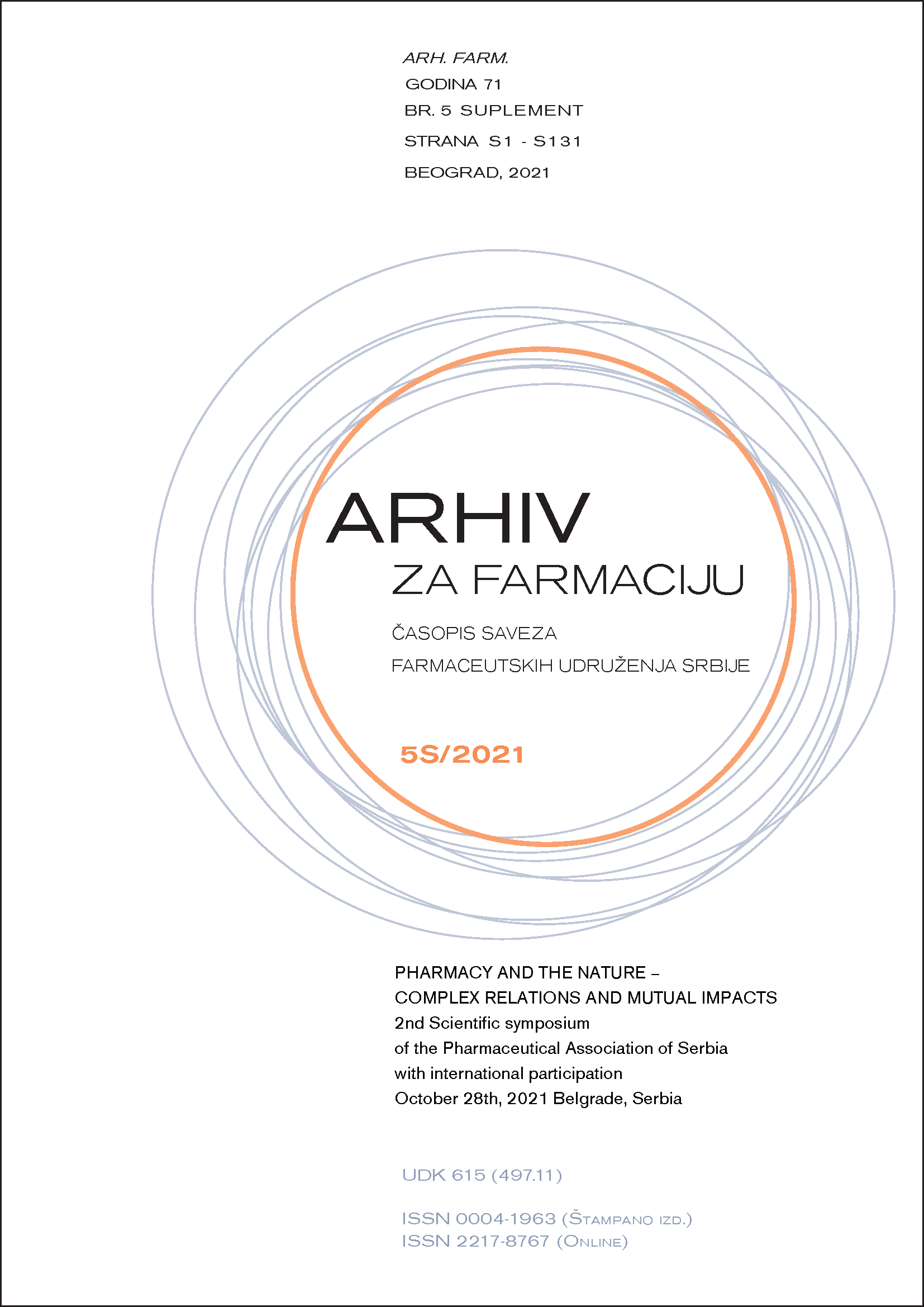SIGNIFICANCE OF PHARMACOGENETICS IN MODERN MEDICINE AND PHARMACY
Abstract
Most drugs have been developed and approved based on pharmacokinetic and pharmacodynamics (PK/PD) studies in larger subject population. However, interindividual differences in the PK/PD of concrete drugs may cause different therapeutic response or presence of side effects within standard treatment protocol. Modern medicine and pharmacy strive for personalized solutions in order to achieve optimal therapeutic outcomes for each individual patient. This approach includes identification of factors of variability in drug response and theirs implementation in therapeutic algorithms. In accordance, it has been shown that genetic factors significantly contribute to variability in drug disposition and effects (1). The development and availability of biotechnology and information technologies have led to new discoveries. In the last 15 years, after complete sequencing and mapping of the human genome (2003), accelerated development and research in pharmacogenetics has started. The pharmacogenetics is a scientific discipline whose task is to study the association between individual genes and the PK/PD characteristics of drugs. Single nucleotide polymorphisms in a DNA molecule, present in the genes of metabolic enzymes, transporters and target proteins, are responsible for their different individual activity and function. Also, an association between drug side effects and certain human leukocyte antigen (HLA) gene polymorphisms has been established. Studies have shown an association between variability in certain genes and pharmacokinetic parameters and/or clinical effects of drugs, such as cytochrome P450 (CYP) 2C9 and VKORC1 genes and warfarin, CYP2C19 gene and clopidogrel, HLA-B genes and allopurinol, abacavir, carbamazepine, CYP2C19 and CYP2D6 genes and antidepressants, SLCO1B1 genes and simvastatin, DYPD genes and fluoropyrimidines, CYP3A5 genes and tacrolimus, but also other gene-drug pairs. CYP3A4/5 metabolizes the largest number of drugs (about 30%), but CYP2D6 and CYP2C19 have been pharmacogenetically more significant. It was shown that the distribution of certain gene polymorphisms (eg. HLA-B) differs in relation to race/ethnicity. This is of a particular importance due to selection of a drug/dosage regimen in different patient populations or in multiethnic societies (2,3). The introduction of pharmacogenetic tests into routine clinical practice may contribute to the development of personalized therapy, where each drug or combination of drugs is optimized to the individual genetic makeup.

